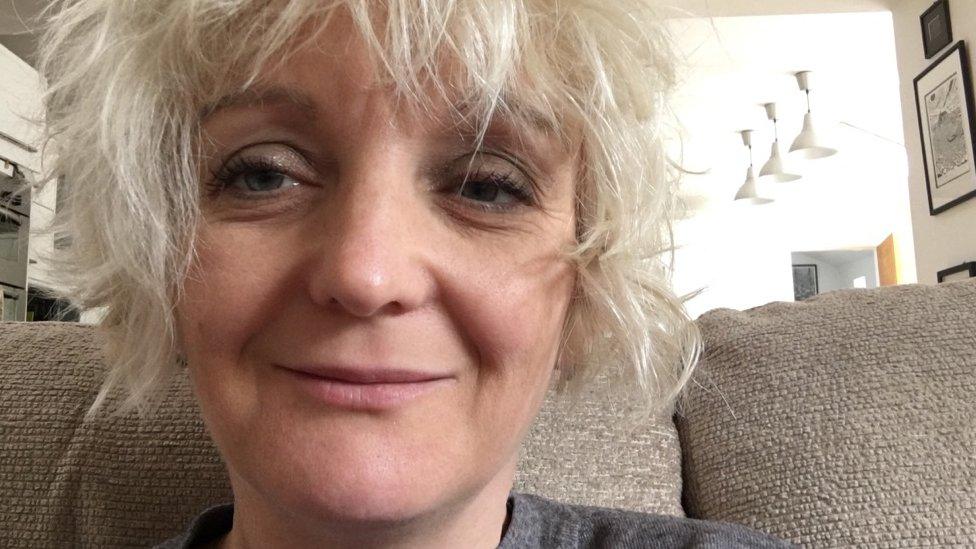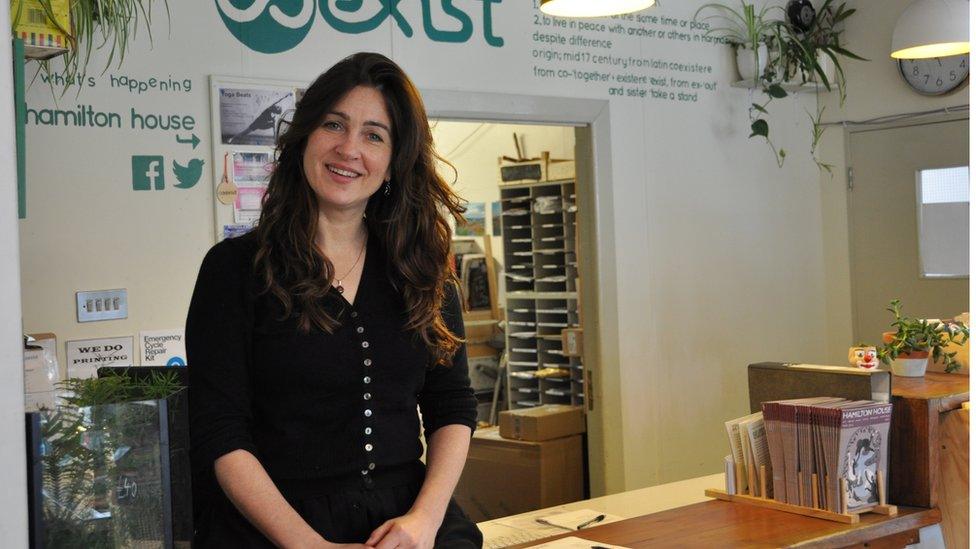Period pain affects 'about half' of women workers
- Published
A group of women talk about suffering from period pain in the workplace.
About half of women workers have experienced period pain that affects their ability to work, a survey suggests.
A YouGov survey of 1,000 women for BBC Radio 5 live's Emma Barnett programme found 52% had, but only 27% had told their boss period pain was responsible.
Of the 52%, nearly a third had taken at least a day's sick leave as a result. And one doctor has suggested employers should offer "menstrual leave".
Nine out of 10 of the women reported having period pain at some point.
'Suffering in silence'
Dr Gedis Grudzinskas, a London-based consultant gynaecologist, said women should be more open about period pain - and employers more understanding.
He added: "Menstruation is normal, but some women suffer terribly and they suffer in silence.
"I don't think women should be shy about it, and companies should be accommodating with leave for women who are struggling with painful periods."

'I struggled to get through an hour's lesson'

Nancy Eccles says painful periods contributed to her decision to leave full-time work
Nancy Eccles left full-time work partly because of her painful periods.
"Two weeks before my period I cry at the drop of a hat, feel low, think the world is ending and feel overwhelmed by everything," she says.
"As soon as I ovulate, there is a surge in progesterone and I fly into rages at the most trivial thing.
"I always soldiered on at work, but in my last two years of teaching full-time, I struggled to get through an hour's lesson before I had to go to the toilet and change myself."
The 48-year-old teacher and maths tutor has suffered from PMS (premenstrual syndrome) and painful periods since she was a teenager.
She is now due to have a hysterectomy to remove her womb.

Fiona Morrison, an employment lawyer at Brodies LLP in Aberdeen, said, in some cases, severe period pain could be considered a disability.
"Under UK law, if someone is in extreme pain and it is stopping them from working effectively, a tribunal could say that this woman is disabled," she said.

What is period pain?
Most women experience pain as part of their menstrual monthly cycle.
It is usually experienced as abdominal cramps, which can spread to the back and thighs.
Period pain can be felt as a dull ache or painful spasms. Women can also experience nausea, diarrhoea and headaches.
The scientific term for period pain is dysmenorrhoea. Levels of the hormone prostaglandin, produced by cells in the lining of the womb, cause it to contract.
The higher that level, the more strongly and more often the womb contracts, causing the pain.
Some women can also experience pelvic pain, even when not on their period.

"It is judged on the impact on the woman without treatment or painkillers.
"This is about extreme cases of severe pain," she added, "and it would always be case specific, so I can't see it opening the floodgates on claims."

'I want to be old with hair on my chin'

Katy Wheatley, 44, is a former marketing executive who has struggled with period pain for all of her adult life.
"For me, migraines are the real killer," she says. "I can go blind in one eye as part of the migraine, and sometimes in both. You don't get much notice.
"When I was employed full-time, I would dose up on pain relief on bad months, use heat pads [and] take changes of clothes."
Ms Wheatley, who is now a blogger, says: "I gave up work after my third child was born because of the childcare costs, but I do worry that it will be an issue if I return to the workplace."
She says GPs refuse to offer her a hysterectomy.
"They say I'm too young. I go away and, when it's bad again, I go and beg them again - and they refuse again," she says.
"I must be one of the few people really looking forward to old age.
"I want to be old with hair on my chin - and no periods."

Dr Grudzinskas said one option was to offer female employees "menstrual leave", already granted to women in countries such as Japan.
"Menstrual leave would make people feel more happy and comfortable in the workplace, which is a positive thing," he said.
"There is also a lack of awareness about when painful periods mean that something is going wrong, like endometriosis.
"People forget that women make up half the workforce.
"If they feel supported, it will be a happy and productive workforce."
- Published7 September 2016

- Published1 March 2016
